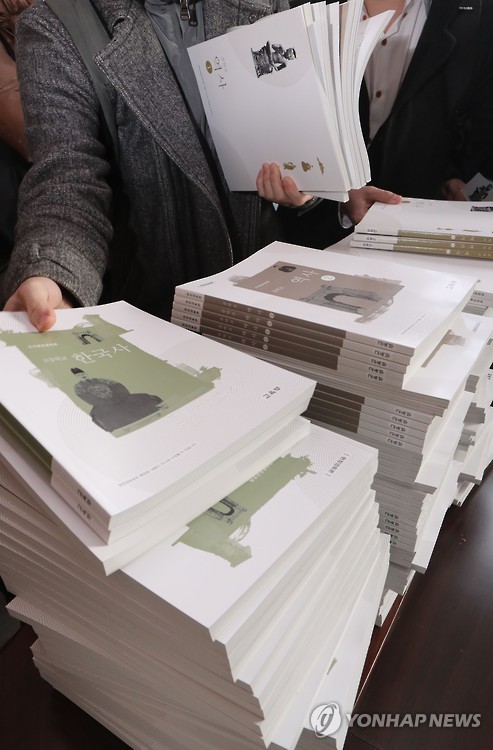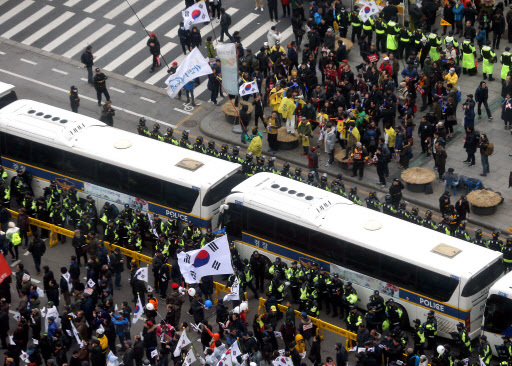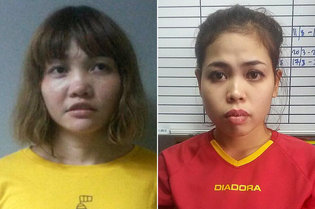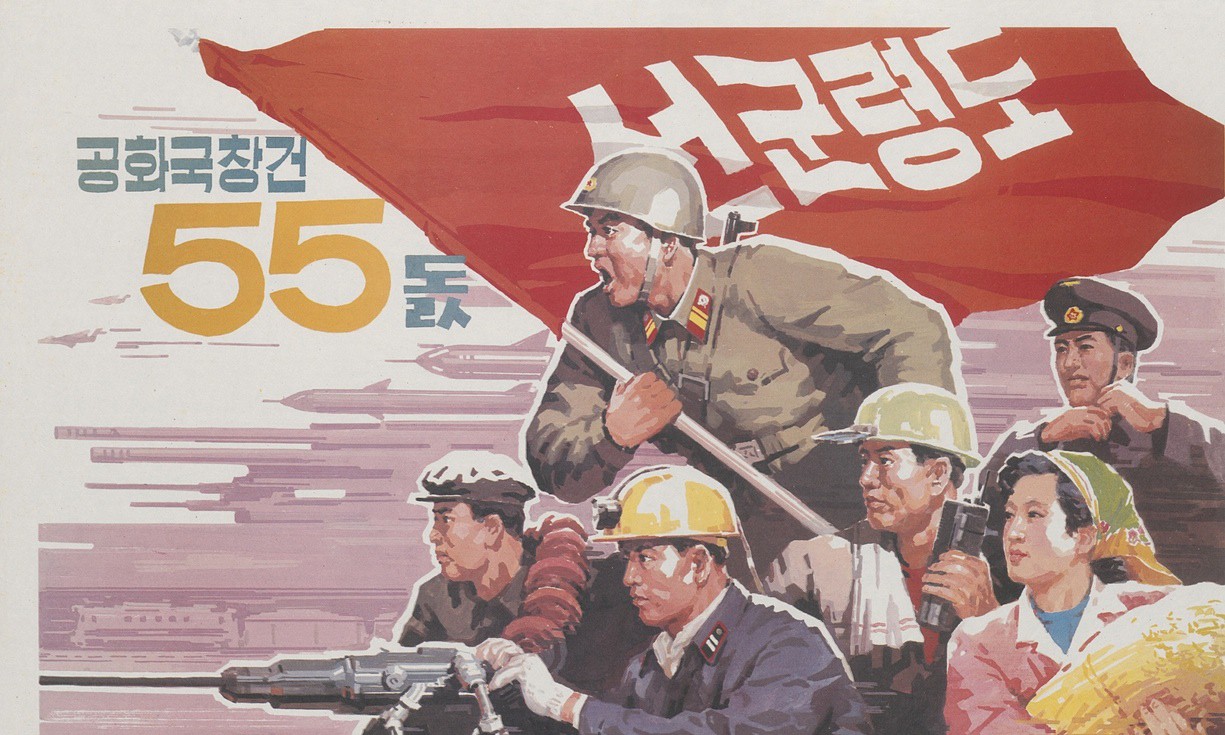South Korea
Politics – Parents of high school students at Munmyeong High School, in Gyeongsan, plan to file an administrative suit with Daegu District Court challenging the school’s adoption of controversial state-authored history textbooks. The school was designated as an experimental school for the textbooks, a move many parents see as illegal and drove 4 incoming students to drop out or move to another school (Yonhap). State authored history textbooks have had a long, troubled history since greenlighted in 2015. Since the decision to move to state-authored history textbooks, the Park administration has been accused of trying to whitewash history to bolster the conservative position (NY Times). In late 2016, it was reported that the official roll out was delayed till 2018, but schools could opt to test the books (Asia News Network). Switching to state-authored textbooks has long been met with negative criticism in Korea; a Gallup Korea poll released on November 6, 2015, showed that 53% viewed the shift negatively (NY Times), and on January 20 this year, South Korean parliament introduced a bill to ban the textbooks (Yonhap). Though not the most scandalous act of the administration, the shift was a part of the two years of scandal which caused Park’s downfall. With the introduction of the bill, it appears the textbooks are in the crosshairs and possibly will be entirely eliminated under the next administration. If not banned, the textbooks will go into use in 2018.
 (Image: South Korean officials hand out pilot editions of the controversial state authored history textbooks in Seoul on November 28, 2016. Source: Yonhap)
(Image: South Korean officials hand out pilot editions of the controversial state authored history textbooks in Seoul on November 28, 2016. Source: Yonhap)
Economy – Households in Korea are facing a toughening burden on two fronts. Last year households spent 2 million won in taxes and quasi-taxes, with the government collecting 10 million won more than expected in taxes. The average household spent 158,761 won in taxes last year, a rise of 2.1% on year (Korea Times). Many forecast such a rise since the government also took in a surplus in 2015. This has opened a debate on lowering the tax rate in Korea to alleviate some of the tax burden and leave families with more disposable income. Currently, South Korea’s tax rate is 19.5%, which is lower than the average OECD rate of 25.1% (Korea Times).
Secondly, Korean outstanding household credit jumped to 1,344.3 trillion won (US$1.17 trillion) during the first quarter of last year, up 11.7% from the previous year (Yonhap). Amid the trend of rising household debt, the Bank of Korea is looking to cut its rates which currently stand at 1.25%. However, with the possibility of an American Fed hike and the upcoming election–domestic political uncertainty mostly–South Korea’s current rate freeze is set to remain for the time being (Yonhap). Bank of Korea Governor Lee Ju-yeol argued for a cautious monetary policy while some analysts have said South Korea has run out of monetary policy cards to revive the economy (Yonhap). As the political uncertainty domestically mixes with economic uncertainty, in terms of a rate hike in the U.S., the Bank of Korea should shy away from drastic moves, opting to maintain the status quo for the time being.
Culture – Wednesday was the anniversary of the March 1 Independence Movement in South Korea, which 98 years ago precipitated the Korean opposition against Japanese occupation. In 2017, pro- and anti-Park protestors took to the streets as the Constitutional Court is deciding whether to uphold or rescind the impeachment motion. As of 8pm, 300,000 people were reported to be in the square, with many anti-Park protestors waving the national flag with an attached yellow ribbon in memory of those who died in the Sewol tragedy (Korea Herald). An anti-Park candlelight vigil was held in the evening to demand the court to uphold the impeachment. South Korea’s political landscape is becoming more and more polarized as the decision lingers. The court is set to render a verdict in early March.
 (Image: Police buses separate pro- and anti-Park protestors in Gwanhhwamun Square. Source: Korea Herald)
(Image: Police buses separate pro- and anti-Park protestors in Gwanhhwamun Square. Source: Korea Herald)
North Korea
News – Just when you think it can not, the Malaysia debacle continues to grow. On Tuesday, the two women who attacked Kim Jong-nam were officially indicted in Malaysia and could receive the death penalty (NY Times). The two women–Indonesian Siti Aisyah and Vietnamese Doan Thi Huong–are officially charged with murder in the attack. Malaysian authorities are also looking to indict Ri Jong-chol in connection with the killing (Korea Times). Malaysia also took more actions against North Korea. The Malaysian government, citing national security, has canceled the visa waver program for North Korean citizens. The change will take effect on March 6, after which any North Korean seeking entry to Malaysia will have to obtain a visa (Yonhap). As the case unfolds, North Korea may face a drastic shift in relations with Malaysia, one that is not for the better.
 (Image: Vietnamese Doan Thi Huong, 28, left, and Indonesian Siti Aisyah, 25, are the two women charged with the murder of Kim Jong-nam and could receive the death penalty. Source: NY Times)
(Image: Vietnamese Doan Thi Huong, 28, left, and Indonesian Siti Aisyah, 25, are the two women charged with the murder of Kim Jong-nam and could receive the death penalty. Source: NY Times)
Leadership Watch – On March 1, Kim Jung-un inspected the headquarters of the large combined unit 966. During his inspection, Kim praised the past commanding officers of the unit, saying many were tough anti-Japanese fighters, provided on the spot guidance, toured the history collections and monuments the unit holds, and offered a path forward for the unit. He also praised the combat readiness of the unit. With him on this visit was KPA Vice Marshal Hwang Pyong So, director of the KPA General Political Bureau, and Army Col. General Ri Yong Gil, first vice-chief of the KPA General Staff and director of the General Operational Bureau (KCNA)[1].
[1] Source is from state-controlled media and should be read with a keen eye to the details of the report. Combination with outside sources can ensure information is complete.


 (Image: South Korean officials hand out pilot editions of the controversial state authored history textbooks in Seoul on November 28, 2016. Source:
(Image: South Korean officials hand out pilot editions of the controversial state authored history textbooks in Seoul on November 28, 2016. Source:  (Image: Police buses separate pro- and anti-Park protestors in Gwanhhwamun Square. Source:
(Image: Police buses separate pro- and anti-Park protestors in Gwanhhwamun Square. Source:  (Image: Vietnamese Doan Thi Huong, 28, left, and Indonesian Siti Aisyah, 25, are the two women charged with the murder of Kim Jong-nam and could receive the death penalty. Source:
(Image: Vietnamese Doan Thi Huong, 28, left, and Indonesian Siti Aisyah, 25, are the two women charged with the murder of Kim Jong-nam and could receive the death penalty. Source: